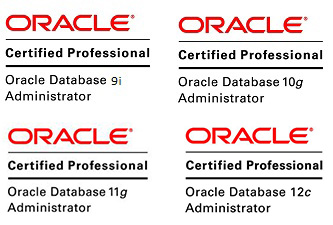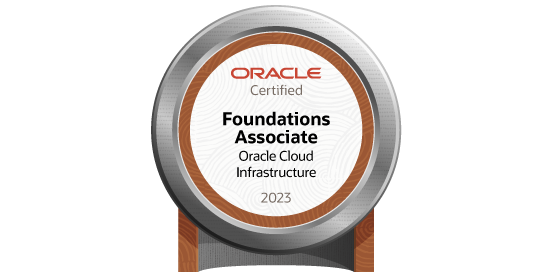Linux Commands for Oracle DBA for day-to-day work environment
Posted by Mir Sayeed Hassan on February 9th, 2021
Linux Commands for every Oracle DBA for day-to-day work environment
The Linux commands discussed here are basic as well as advanced level where every Oracle DBA should known on there day-to-day work environment.
Find the help command
[oracle@testdb ~]$ man ls
[oracle@testdb ~]$ info ls
Note:
Man is a help command, you can get more information about any commands in UNIX.
info – Read more information about the commands
DIERCTORY COMMANDS
Find the present working directory
[oracle@testdb ~]$ pwd /home/oracle
Create a directory
[oracle@testdb ~]$ mkdir test
[oracle@testdb ~]$ mkdir -p /home/oracle/test
Note:
– The above command will create a directory data under the present working directory
– In case if you want to create a directory with different location, use the 2nd example with mkdir -p
Moving to a directory
[oracle@testdb ~]$ cd /home/oracle/test
Deleting a directory
[oracle@testdb ~]$ rmdir test
Note:
The above command will delete empty directory, this will not work if the directory is not empty.
Deleting a directory along with files by force
[oracle@testdb ~]$ ll /home/oracle/test -rw-r--r--. 1 oracle oinstall 0 Feb 9 09:25 t1.sql -rw-r--r--. 1 oracle oinstall 0 Feb 9 09:25 t2.txt [oracle@testdb ~]$ rm -rf test
Move a contents of directory to another
[oracle@testdb ~]$ mv /home/oracle/test /home/oracle/test_copy
Rename a folder
[oracle@testdb ~]$ mv test test_copy
FILE COMMANDS
To view the contents of a file
[oracle@testdb test]$ cat sample1.txt
This is the sample text file to review my contents of file by using the cat command
[oracle@testdb test]$ cat sample2.sql
select status from v$instance;
select name from v$datafile;
Creating a file
[oracle@testdb test]$ vi newfile.txt :wq - save & quit
or
[oracle@testdb test]$ cat > newfile.txt This blog is to shared the realtime example by mir sayeed hassan ctl+c - exit.
Remove a file normally or force
[oracle@testdb test]$ rm newfile.txt
[oracle@testdb test]$ rm -rf newfile.txt
Rename a file
[oracle@testdb test]$ mv sample2.sql sample1.sql
Copy the file to another location
[oracle@testdb test]$ cp sample1.sql /home/oracle
Listing a file
[oracle@testdb test]$ ls sample1.sql
List file with creation time
[oracle@testdb test]$ ls -lt
total 4
-rw-r--r--. 1 oracle oinstall 60 Feb 9 09:34 sample1.sql
List files along with hidden
[oracle@testdb test]$ ls -alt total 8 drwxr-xr-x. 2 oracle oinstall 25 Feb 9 09:51 . drwx------. 20 oracle oinstall 4096 Feb 9 09:49 .. -rw-r--r--. 1 oracle oinstall 60 Feb 9 09:34 sample1.sql
More option use man
[oracle@testdb test]$ man ls
Copying a file from source machine to destination machine
[oracle@testdb test]$ scp sample1.sql oracle@192.168.*.*:/home/oracle/
Note: The above file will be copied as oracle user privilege & enter the oracle password when prompted.
Find the free space of system at OS Level in KB
[oracle@testdb ~]$ df Filesystem 1K-blocks Used Available Use% Mounted on devtmpfs 1880388 0 1880388 0% /dev tmpfs 1890628 0 1890628 0% /dev/shm tmpfs 1890628 189020 1701608 10% /run tmpfs 1890628 0 1890628 0% /sys/fs/cgroup /dev/sda2 25678828 25136660 542168 98% / /dev/sda1 520876 225836 295040 44% /boot tmpfs 378128 0 378128 0% /run/user/1009 tmpfs 378128 0 378128 0% /run/user/1001 tmpfs 378128 0 378128 0% /run/user/1002
Find the free space of system at OS Level in GB
[oracle@testdb ~]$ df -h Filesystem Size Used Avail Use% Mounted on devtmpfs 1.8G 0 1.8G 0% /dev tmpfs 1.9G 690M 1.2G 38% /dev/shm tmpfs 1.9G 185M 1.7G 10% /run tmpfs 1.9G 0 1.9G 0% /sys/fs/cgroup /dev/sda2 25G 24G 670M 98% / /dev/sda1 509M 221M 289M 44% /boot tmpfs 370M 0 370M 0% /run/user/1003 tmpfs 370M 0 370M 0% /run/user/1001
Find the space used by directory
[oracle@testdb ~]$ du -h test 4.0K test
Find the space used by file
[oracle@testdb test]$ du -h sample1.sql
4.0K sample1.sql
View the contents of file page by page
[oracle@testdb test]$ cat sample1.sql | more select status from v$instance; select name from v$datafile;
Log into the remote server by SSH
[oracle@testdb ~]$ ssh oracle@192.168.*.*
Compressing the file
[oracle@testdb test]$ gzip sample1.sql
[oracle@testdb test]$ ls sample1.sql.gz
Uncompressing the file
[oracle@testdb test]$ gunzip sample1.sql.gz [oracle@testdb test]$ ls sample1.sql
View the schedule jobs using crontab
[oracle@testdb ~]$ crontab -l ############################################################################ ##Schedule the script by Mir to Delete old .trc,.trm,.xml,.aud files from DB ############################################################################ 00 22 * * * /home/oracle/scripts/del_trc_trm_aud_xml_files.sh
Display the current running process
[oracle@testdb ~]$ ps -eaf UID PID PPID C STIME TTY TIME CMD root 1 0 0 Feb02 ? 00:00:42 /usr/lib/systemd/systemd --switched-root --system --deserialize 22 root 2 0 0 Feb02 ? 00:00:00 [kthreadd] root 3 2 0 Feb02 ? 00:00:19 [ksoftirqd/0] root 5 2 0 Feb02 ? 00:00:00 [kworker/0:0H] oracle 2317 1 0 Feb05 ? 00:00:58 ora_psp0_mirtdb oracle 2322 1 1 Feb05 ? 01:32:08 ora_vktm_mirtdb oracle 2326 1 0 Feb05 ? 00:00:11 ora_gen0_mirtdb oracle 2328 1 0 Feb05 ? 00:00:20 ora_diag_mirtdb — — —
Kill the process
[oracle@testdb ~]$ kill -9 2377 or [oracle@testdb ~]$ kill -F 2377 Shutdown the OS
Shutdown server immediately
[root@testdb ~]# shutdown -h now
Shutdown server after 10 minutes
[root@testdb ~]# shutdown -h +10
Reboot server immediately
[root@testdb ~]# shutdown -r now [root@testdb ~]# init 0 [root@testdb ~]# init 6 [root@testdb ~]# reboot
Note:
init 0 – Shutdown the server with ok prompt
init 6 – Reboot the server
reboot – Reboot the server
Find out the free memory
[oracle@testdb ~]$ free -m total used free shared buff/cache available Mem: 3692 433 134 874 3125 2302 Swap: 0 0 0
Find the top memory consuming process at OS Level
[oracle@testdb ~]$ top top - 10:20:22 up 6 days, 20:10, 1 user, load average: 0.00, 0.03, 0.05 Tasks: 140 total, 1 running, 139 sleeping, 0 stopped, 0 zombie %Cpu(s): 0.0 us, 6.1 sy, 0.0 ni, 93.9 id, 0.0 wa, 0.0 hi, 0.0 si, 0.0 st KiB Mem : 3781256 total, 135112 free, 445648 used, 3200496 buff/cache KiB Swap: 0 total, 0 free, 0 used. 2355036 avail Mem PID USER PR NI VIRT RES SHR S %CPU %MEM TIME+ COMMAND 2322 oracle -2 0 1784212 44528 42708 S 6.2 1.2 92:20.58 oracle 23823 oracle 20 0 162032 4432 3760 R 6.2 0.1 0:00.02 top 1 root 20 0 128364 8360 5588 S 0.0 0.2 0:42.21 systemd 2 root 20 0 0 0 0 S 0.0 0.0 0:00.15 kthreadd
Changing the permission for directory
[oracle@testdb ~]$ chmod 755 test
Changing the permission for directory
[oracle@testdb ~]$ chmod -R 755 test
Changing the permission for file
[oracle@testdb ~]$ chmod -R 777 /home/oracle/test/sample1.sql
Changing the read,write & execute permission to owner, group & other users.
[root@testdb oracle]# chmod ugo+rwx test
Changing the read, write permission to owner, read permission to group & nothing for user
[root@testdb oracle]# chmod u+rw,g+r test
Note:
You can use the below formula to allocate the permission as per your requirement.
7- READ
4 – WRITE
1 – EXECUTE
Changing the ownership of directory
[oracle@testdb ~]$ chown oracle:oinstall test
[oracle@testdb ~]$ chown oracle:dba test
In case if you want the ownership as root, then you need to login as root & execute
[root@testdb oracle]# chown root:dba test
Changing the ownership of file
[root@testdb test]# chown root:dba sample1.sql
Change exiting group
[root@testdb test]# chgrp oinstall test
Changing the password for user
[root@testdb ~]# passwd oracle Changing password for user oracle. New password: ********* Retype new password: ********* passwd: all authentication tokens updated successfully.
Find the name of machine
[oracle@testdb ~]$ uname -a Linux testdb.mirsayeedhassan.com.novalocal 4.1.12-124.34.1.el7uek.x86_64 #2 SMP Tue Dec 3 16:33:43 PST 2019 x86_64 x86_64 x86_64 GNU/Linux
How to switch one user to another
[oracle@testdb ~]$ su - oracle Password: Last login: Tue Feb 9 14:55:23 EST 2021 on pts/1
or any other user assign in /etc/sudoers
[oracle@testdb ~]$ su - mir Password: Last login: Tue Feb 9 14:38:53 EST 2021 from 5.116.75.142 on pts/1
Add a new user
[root@testdb ~]# useradd mir
Delete the existing user
[root@testdb ~]# userdel mir123
Add a new group
[root@testdb ~]# groupadd -g dbanew
[root@testdb ~]# more /etc/group|grep dba dbanew:x:1020:
Delete a group
[root@testdb ~]# groupdel dbanew
Mount a new disk
[root@testdb ~]# mount /u02
Umount a existing disk
[root@testdb ~]# umount /u02
Alias for the command
[root@testdb ~]# alias ls='ls -al'
[root@testdb ~]# ls total 458804 dr-xr-x---. 5 root root 4096 Jan 16 18:18 . dr-xr-xr-x. 20 root root 4096 Oct 30 14:05 .. -rw-------. 1 root root 1642 Oct 1 2019 anaconda-ks.cfg
Display the current date of system
[root@testdb ~]# date
Tue Feb 9 15:16:05 EST 2021
Display the calendar of current month
[root@testdb ~]# cal February 2021 Su Mo Tu We Th Fr Sa 1 2 3 4 5 6 7 8 9 10 11 12 13 14 15 16 17 18 19 20 21 22 23 24 25 26 27 28
Create a file
[root@testdb test]# touch test
Copy the output of of “ls -al” to test file
[root@testdb test]# ls sample1.sql > test
[root@testdb test]# cat test -rwxrwxrwx. 1 root dba 60 Feb 9 09:34 sample1.sql
Clear the display of current page
[root@testdb ~]# clear
Compare the files
[root@testdb test]# cmp sample1.sql sample2.sql
Difference of two files
[oracle@testdb test]$ diff sample1.sql sample2.sql
2a3
> select * from V$log;
[root@testdb test]# cmp sample1.sql sample2.sql
cmp: EOF on sample1.sql
Note: Here it compare both the files, if the contents are same then it return null, if not it return EOF.
Copy all the files from one directory to another
[root@testdb ~]# cp -r /home/oracle/test/* /home/oracle/
Copy the files
[root@testdb test]# cp sample1.sql sample2.sql
Display the Statement or parameter by using echo
[oracle@testdb ~]$ echo $ORACLE_SID mirtdb
[oracle@testdb ~]$ echo $ORACLE_HOME /u01/app/oracle/product/11.2.0/dbhome_1
Search a string or file
[oracle@testdb ~]$ ps -ef | grep oracle oracle 894 1 99 15:17 ? 00:51:02 ./kswapd0 oracle 1112 1 0 15:21 ? 00:00:00 /bin/bash ./go oracle 1156 1150 15 15:21 ? 00:03:56 /tmp/.X25-unix/.rsync/c/lib/64/tsm --library-path /tmp/.X25-unix/.rsync/c/lib/64/ /usr/sbin/httpd rsync/c/tsm64 -t 515 -f 1 -s 12 -S 10 -p 0 -d 1 p ip root 2569 30249 1 15:46 pts/1 00:00:00 su - oracle [oracle@testdb ~]$ ls -al | grep oracle drwx------. 21 oracle oinstall 4096 Feb 9 15:39 . -rw-r--r--. 1 oracle oinstall 59 Feb 6 16:29 afiedt.buf -rw-------. 1 oracle oinstall 16538 Feb 9 15:46 .bash_history
List any jobs running in server
[oracle@testdb ~]$ jobs
View a file
[oracle@testdb ~]$ more /home/oracle/test/sample1.sql
select status from v$instance;
select name from v$datafile;
Ping an IP Address or Hostname
[oracle@testdb ~]$ ping 5.253.*.*
PING 5.253.25.53 (5.253.*.*) 56(84) bytes of data.
64 bytes from 5.253.*.*: icmp_seq=1 ttl=64 time=0.052 ms
64 bytes from 5.253.*.*: icmp_seq=2 ttl=64 time=0.056 ms
or
[oracle@testdb ~]$ ping testdb.mirsayeedhassan.com PING testdb.mirsayeedhassan.com (5.253.*.*) 56(84) bytes of data. 64 bytes from testdb.mirsayeedhassan.com (5.253.*.*): icmp_seq=1 ttl=64 time=0.038 ms
Display the process status
[oracle@testdb ~]$ ps PID TTY TIME CMD 2732 pts/1 00:00:00 bash 2897 pts/1 00:00:00 ps
Show the last lines of the files
[oracle@testdb test]$ tail -f sample1.sql
select status from v$instance;
select name from v$datafile;
[oracle@testdb test]$ tail -10 sample1.sql
select status from v$instance;
select name from v$datafile;
[oracle@testdb test]$ cat -n sample1.sql 1 select status from v$instance; 2 select name from v$datafile;
Note:
tail -f – This will display the current running log
tail -10 – This will display the last 10 lines of the log file
cat -n – This will display with number
Display the user currently login in
[oracle@testdb ~]$ who rit pts/0 2021-02-09 14:11 (129.0.205.224) mir pts/1 2021-02-09 14:38 (5.116.75.142)
[oracle@testdb ~]$ who am i mir pts/1 2021-02-09 14:38 (5.116.75.142)
Display all the current user login & there activity
[oracle@testdb ~]$ w 16:04:03 up 7 days, 1:54, 2 users, load average: 6.31, 6.65, 5.59 USER TTY FROM LOGIN@ IDLE JCPU PCPU WHAT ovono pts/0 129.0.205.224 14:11 1:36m 0.71s 0.45s sshd: ovono [priv] mir pts/1 5.116.75.142 14:38 0.00s 1.41s 0.43s sshd: mir [priv]
Display who am i
[oracle@testdb ~]$ who am i mir pts/1 2021-02-09 14:38 (5.116.75.142)
or
[oracle@testdb ~]$ id uid=1002(oracle) gid=1002(oinstall) groups=1002(oinstall),1003(dba),1004(oper),1005(asmadmin) context=unconfined_u:unconfined_r:unconfined_t:s0-s0:c0.c1023
Archive files using tar & un-tar
[root@testdb oracle]# tar -cvf test_tar.tar test test/ test/sample1.sql test/sample2.sql test/test.tar
[root@testdb oracle]# tar -xvf test_tar.tar
test/
test/sample1.sql
test/sample2.sql
test/test.tar






